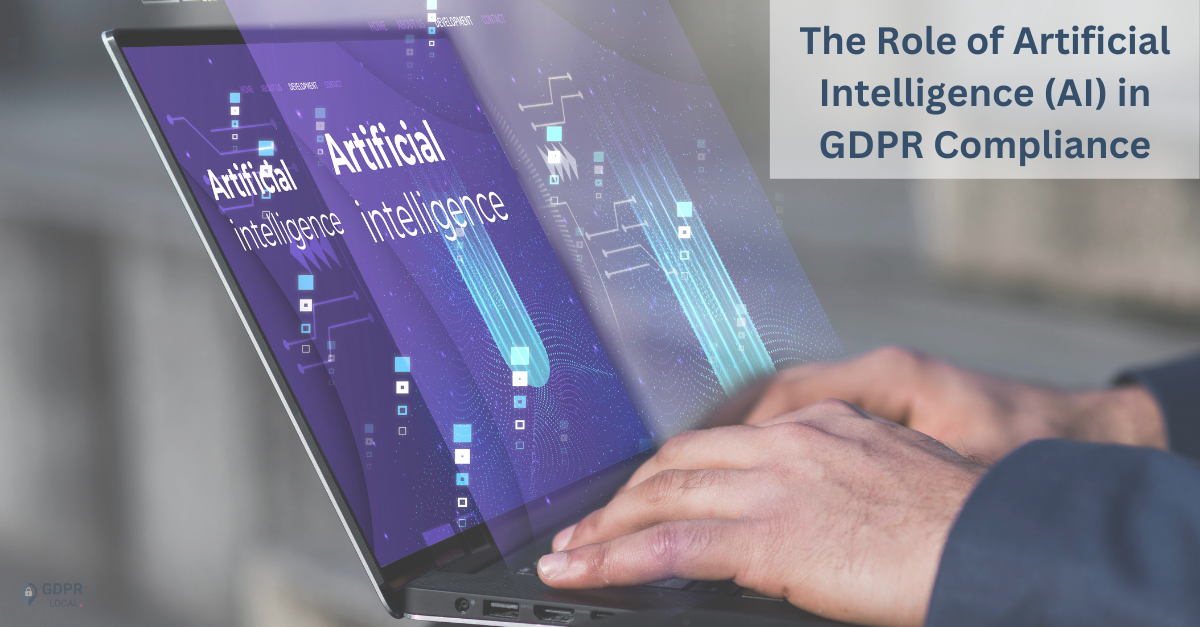
The Role of Artificial Intelligence (AI) in GDPR Compliance
The widespread use of artificial intelligence (AI) has revolutionized various industries. However, with the increasing reliance on AI technologies, organizations must understand the role of AI in ensuring compliance with the General Data Protection Regulation (GDPR). The GDPR, introduced in May 2018, is a European Union (EU) regulation aimed at safeguarding the privacy and personal data of EU citizens.
Understanding GDPR Compliance
Before delving into the role of AI in GDPR compliance, it is crucial to grasp the fundamental principles of the GDPR. The regulation sets strict guidelines for organizations regarding the collection, storage, and processing of personal data. It also grants individuals certain rights, such as the right to access their data, the right to erasure, and the right to be informed about how their data is being used.
Automating GDPR Compliance with AI
AI has the potential to automate various processes involved in GDPR compliance, making them more efficient and reducing the risk of human error. Let’s explore some key areas where AI can play a significant role:
Data Collection, Storage, and Analysis
AI algorithms can be leveraged to automate data collection, storage, and analysis processes. By employing AI-powered tools, organizations can streamline compliance efforts and ensure that sensitive data is identified and protected. These tools can detect and flag potential breaches, helping organizations maintain data integrity and avoid penalties resulting from GDPR non-compliance.
Processing Data in Accordance with GDPR Regulations
AI can be programmed to ensure that data processing adheres to GDPR regulations. For instance, AI systems can be designed to process only the minimum necessary data, automatically erase data when no longer needed, and provide individuals with the right to access and manage their personal data. By implementing AI systems, organizations can mitigate the risk of non-compliance and protect individuals’ privacy rights.
Automating Data Protection Impact Assessments (DPIAs)
Under the GDPR, organizations must conduct Data Protection Impact Assessments (DPIAs) when introducing new processes or technologies that may pose a high risk to individuals’ rights and freedoms. AI algorithms can analyze data and identify potential risks, saving organizations time and effort in conducting these assessments. By automating DPIAs, organizations can ensure compliance while allocating resources more effectively.
Transparency and Explainability of AI Systems
While AI can streamline GDPR compliance processes, organizations must ensure that AI systems are transparent and explainable. Transparency refers to providing individuals with clear information about how their data is being processed, while explainability ensures that AI algorithms are accountable and comprehensible. Organizations must regularly audit AI systems to guarantee GDPR compliance and prevent potential breaches.
Best Practices for AI-driven GDPR Compliance
To effectively integrate AI into GDPR compliance efforts, organizations should adopt the following best practices:
Privacy by Design
Implement privacy safeguards from the early stages of developing AI systems. Privacy should be a core principle and considered in every aspect of the system’s design and operation.
Transparent Data Processing
Ensure clear and concise communication with individuals about how their data is being processed. Use plain language in privacy notices and provide individuals with meaningful choices and consent options.
Data Minimization and Purpose Limitation
Collect and process only the data necessary for the intended purpose. Avoid excessive data collection and retention, ensuring compliance with the GDPR’s principles of data minimization and purpose limitation.
Data Security
Implement robust data security measures to protect personal data from unauthorized access, loss, or theft. Regularly assess and update security protocols to align with evolving threats and industry standards.
Data Protection Impact Assessments (DPIAs)
Conduct comprehensive DPIAs to identify and mitigate risks associated with AI systems’ data processing activities. DPIAs should be carried out whenever significant changes or new technologies are introduced.
Consent Management
Utilize AI-powered consent management platforms to obtain, record, and manage individuals’ consent. These platforms should enable individuals to easily withdraw their consent and provide mechanisms to ensure the validity and traceability of consent.
Right to Information
Empower individuals to exercise their rights under the GDPR, such as the right to access, rectify, or erase their personal data. AI systems should facilitate efficient and transparent data subject request processing.
Data Subject Rights and Safeguards
Ensure that AI systems respect individuals’ rights, including the right to object to automated decision-making processes. Implement safeguards to prevent discriminatory or biased outcomes resulting from AI algorithms.
Training and Awareness
Train employees on GDPR compliance best practices and ensure they understand the implications of AI-driven data processing activities. Foster a culture of data protection and privacy within the organization.
Monitoring and Accountability
Regularly monitor AI systems’ performance and conduct audits to ensure ongoing compliance with the GDPR. Establish accountability mechanisms to address any potential issues promptly.
By following these best practices, organizations can leverage AI’s potential to enhance GDPR compliance efforts while safeguarding individuals’ privacy and data protection rights.

Book a Call with Our GDPR Specialists
At GDPRLocal, we specialize in providing comprehensive GDPR compliance solutions. Our team of experienced professionals can guide you through the complexities of AI-driven GDPR compliance, ensuring that your organization meets its legal obligations while protecting individuals’ privacy rights. Book a call with our GDPR specialist today and take the first step towards achieving GDPR compliance.
Please note that this article is for informational purposes only and should not be considered legal advice.